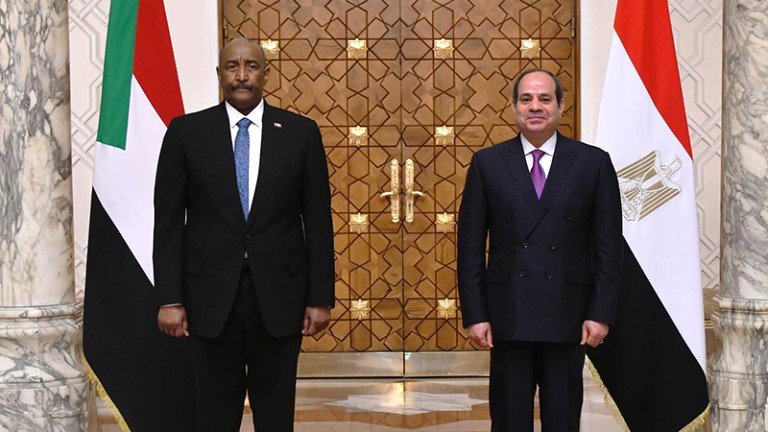By Matik Kueth
Egypt’s capital emerged as a strategic power center on Monday, attracting military leaders from two war-torn neighbors as regional tensions increased at the volatile border of Sudan, Egypt, and Libya.
Sudanese military leader, Gen. Abdel Fattah al-Burhan, suddenly left an international summit in Spain to hold high-level talks with Egyptian President Abdel Fattah al-Sisi in Cairo.
His unscheduled detour underscores the urgency gripping the region after paramilitary forces seized control of a critical border zone.
At the same time, Libyan military warlord Khalifa Haftar arrived in Cairo for separate discussions with Sisi, highlighting Egypt’s expanding role as a mediator and power broker in North Africa’s increasingly entangled conflicts.
Sources familiar with the Cairo meetings said that Egypt is exploring the possibility of brokering a face-to-face dialogue between Burhan and Haftar, a move aimed at defusing rising tensions after Sudan’s army accused Haftar-linked Salafist militias of backing the Rapid Support Forces (RSF) in their seizure of the tri-border area.
Intelligence reports have also pointed to the establishment of RSF training facilities inside Libyan territory, further fueling suspicions of cross-border collusion and pushing Sudan’s military leadership to seek urgent consultations with Egypt.
Egyptian state media confirmed Sisi’s discussions with Haftar focused on removing foreign fighters from Libya, a long-standing security priority for Cairo, while his meeting with Burhan covered Sudan’s shattered economy, post-war reconstruction, and accelerating humanitarian aid delivery.
While official statements emphasize unity and cooperation, analysts say the convergence of these rival strongmen in Cairo reflects a deeper power struggle: a race to influence the outcome of overlapping crises in a region where war, displacement, and proxy conflicts are increasing rapidly.
As the borderlands smolder and alliances shift, Egypt is positioning itself not just as a neighbor but as a gatekeeper of the region’s fragile stability.



